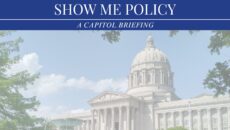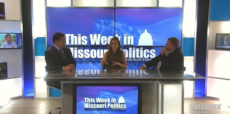Senate Bill 4 is not consumer protection legislation. Despite what was published in the Missouri Times on September 12 and recent comments from state elected officials, it will not prevent data centers from raising our rates. Loopholes in the law’s large load consumer clause and an industry-influenced regulatory commission will ensure data centers and utilities can maximize their profits on the backs of everyday Missourians.
SB4 requires electric companies to create a rate for consumers that expect to use 100 MW or more of electricity, like some data centers. This equals the energy use of about 16,400 American households. Data centers can range from a few megawatts to hundreds of megawatts, so many fall far below the SB4 threshold. Further, multiple data centers are often clustered, as in Virginia’s “data center alley.” Developers coming to Missouri can simply build multiple data centers of 99 MW or less to avoid the fee. Finally, this does not protect against most data centers: not a single data center in California operates at 100 MW or more, and the average data center in that state uses just 13 MW.
Additionally, SB4 only applies to the energy consumed by large load customers like data centers, not the infrastructure being built to attract them. If new power generation is built without a specific data center or similar large load project attached, residential customers could still have to pay for the construction through bill increases.
The law goes on to state that the tariff should “prevent other customer classes’ rates from reflecting any unjust or unreasonable costs arising from service to such.” The terms “unjust or unreasonable” are left to the state regulatory body, the Public Service Commission (PSC), to define. Everyday Missourians can count on the PSC to raise rates: they voted unanimously to do so in this year’s Ameren, Evergy, and Spire rate cases. Consumer advocates estimate SB4 will result in additional increases of over $1,000 annually. MCE has written more extensively about those details on our website.
Finally, the law does not require that the cheapest, fastest deployed sources of energy be built in order to accommodate large load consumers. Despite a federal landscape hostile to renewables, solar and wind power remain the cheapest energy available on the market today. Solar and wind are free power sources we do not have to import to Missouri, making them more secure investments and stable in pricing compared to coal, gas, or nuclear fuel. It would benefit all Missourians for the PSC to recommend a more balanced and equitable portfolio, not faster rate increases.

Policy Coordinator, Missouri Coalition for the Environment






